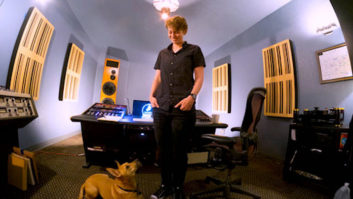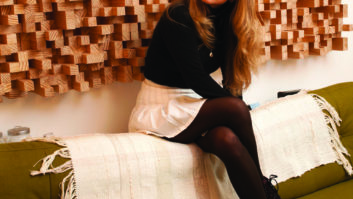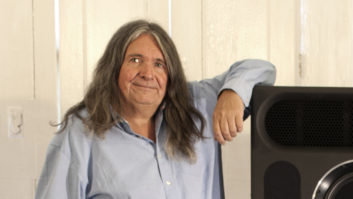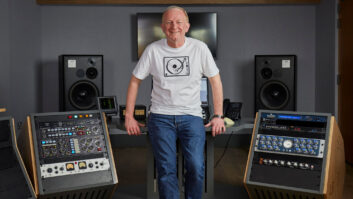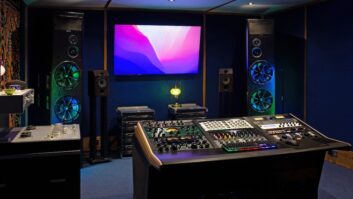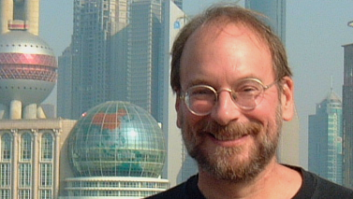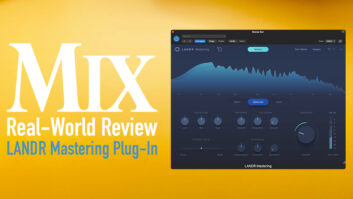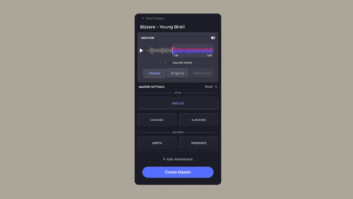Oakland, CA (December 13, 2017)—Mastering engineer Piper Payne grew up as a young drummer in Michigan, taking lessons from early elementary school on. Throughout that time, her grandfather, a carpenter and engineer, became an influencing force in her life, teaching her about building things “and not being afraid to tackle any project by figuring it out as you go,” she says. “I have a little bit of that [working] in me all the time.”
Payne eventually entered the University of Michigan to pursue electrical engineering, relegating musical pursuits to more of a hobby. “I didn’t necessarily want to play drums to eat,” she recalls, “so I started doing electrical engineering and computer science prerequisites at Michigan, then found out [about] the Department of Performing Arts Technology, or PAT program, where I completed my undergrad. For most of the time, I was heavily focused on classical recording, so I learned as much as I could about acoustic and ‘hi-fi’ style recording before going to Norway for grad school in a similar program.”
It wasn’t long before Payne landed a job in a Norwegian tape transfer facility. “That was totally fun,” she recalls. “I was the only one coming up that knew how to run a tape machine, so I was hired to do digitization transfers for this giant company.” Before long, Payne was invited to join the company’s mastering engineer as an assistant, which resulted in a perfect match. “From that first day, I fell in love with mastering. It’s genre-agnostic; for better or worse, we aren’t pigeon-holed, like many engineers and mixers are, into a genre. It’s all about the quality control process and format conversion, and you just so happen to be working on lots of different kinds of music day-to-day. That was really, really attractive to me.”
Having pursued electrical engineering for approximately 18 months before moving to Michigan’s PAT program, Payne had already taken the programming and challenging math courses. “I think that it all made me a better technical engineer, rather than just jumping in from the artistic side,” she reasons. “Mastering is a very technical field, with lots of technical correctness before the art even happens.”
That said, Payne still recalls an important conversation that resonates within her own philosophy of mastering to this day. “Early on in my career, I had a conversation with [Skywalker Sound’s] Leslie Ann Jones, who is [now] a good friend of mine. She said, ‘I hate the word “capture.” I hate the idea that you’re just going to capture a performance.’ A lot of the classical recordings that we have are not just archival; a lot of the classical records that you hear are really larger than life. They’re not just about putting the listener into that original experience that perhaps the recording engineer had. It’s about expressing all the beauty that the performance had and representing that in the best way that you can. That’s what mastering is for me; it’s about the presentation, not just about documenting what happened. [And it’s about] putting in the 10,000 hours of time and experience of disciplined listening that we have to do.”
Those 10,000 hours helped pave the way for Payne’s Neato Mastering; launched this past summer in Oakland, CA, the purpose-built facility resides in the Sharkbite Studios complex at Jack London Square. “Oakland has been a wonderful community for me, and I have a pretty decent local business going on as well,” explains Payne, who envisioned Neato following a longstanding stint as mastering engineer at San Francisco’s Coast Mastering. “I would say about 30 percent of my business is local to the Bay Area. The rest is from around the world.”
Neato boasts Payne’s favorites in audio processing hardware, including a Manley Labs SLAM! stereo limiter, Langevin Mini Massive EQ, GML 8200 Parametric EQ, and iZ Technology’s RADAR UltraNyquist AD/DA converters as well as her most recent purchase, a pair of PMC BB5 XBD-Active three-way monitors. “I would consider myself a ‘do only what it needs’ kind-of engineer, so for that, I need a lot of tools,” offers Payne regarding her hardware and carefully curated collection of plug-ins. “The mixes that we’re getting from all over the world are all so very different; there’s not the same kind of common [aural] thread in all of rock or pop music that I can see. It comes from a lot of people working in a lot of different environments, so mastering needs are much more of a wild card today. For my projects with outboard analog-based, real-time mastering, some of them end up hitting digital and my plug-ins—very specific ones that I’ve vetted for my mastering chain—just to control some of that loudness when they come in. There are professional mixers sending in things that are clipped with distortion in the bass, so I have to do a lot of cleanup and controlling before I can even start to ‘master’ the song.”
Starting a new facility always requires considerable investment, usually incurred upfront and amortized over time. Fortunately, Payne inadvertently avoided that with Neato Mastering: “Over the last six-and-a-half years while I’ve been in the Bay Area and building clientele, I’ve been buying gear. When I made the move to the new studio, to be frank, a lot of it was rebranding myself as an independent business owner. All of my gear came with me, but I had to make a speaker purchase [and] PMC helped me out. Maurice [Patist, PMC president, Sales and Marketing USA] is just an angel; he came to me and helped me get started, and those [speakers] are paid off now, so that feels really good. I was able to start the company with just a new logo, a rebrand, a PR push and the purchase of the speakers. And I’m not in any debt. I own all my equipment and had the room tuned and designed by Maurice, and I have a wonderful team of people that came down to Oakland and helped me construct this, getting it started.” That’s pretty neat.
